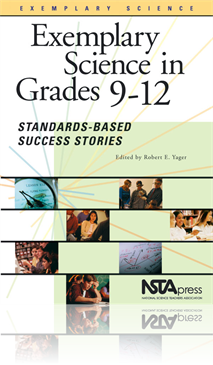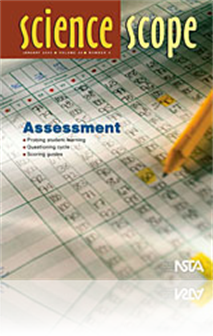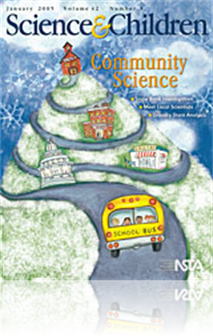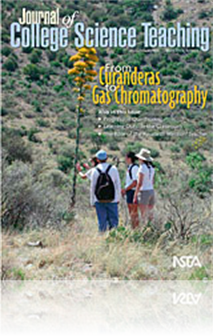All Resources
Book Chapter
Stop Talking, Start Listening: Turning Didactic Science Teaching on Its Head
In this chapter, the authors hope to illustrate science instruction that focuses on real-world problems and features the science teacher performing a variety of research-based strategies during any given teaching segment. It is a major goal also of t...
Book Chapter
The Sky's the Limit: A More Emphasis Approach to the Study of Meteorology
This chapter features curriculum for the senior Meteorology elective at the Marymount School of New York—an all-female, independent school in New York City. The curriculum is aligned with the National Science Education Standards (NSES) More Emphasi...
Book Chapter
The author—a teacher at Rockwall High School in Texas—covers specific standards in this chapter which includes selecting and adapting curriculum, as well as guiding students in active and extended scientific inquiry. The course is intended to mak...
Book Chapter
Successes and Continuing Challenges: Meeting the NSES Visions for Improving Science in High Schools
The 15 programs described in this book illustrate where we are with respect to realizing the vision of the 1996 National Science Education Standards (NSES)—eight years after their publication and acceptance as needed new directions. The hope and ex...
Book Chapter
Technology and Cooperative Learning: The IIT Model for Teaching Authentic Chemistry Curriculum
Computer technology emerged as a viable tool for classroom instruction. This chapter reflects upon a case study of a high school chemistry classroom where the computer was used in a unique way to deliver and direct curriculum on acids and bases. The...
Book Chapter
Inquiring Minds Want to Know All About Detergent Enzymes
This enzyme unit demonstrates how students can learn using inquiry and questioning techniques. By providing students the opportunity to share ideas, evaluate problem statements, develop hypotheses, design experiments, and make conclusions, they acqui...
Book Chapter
Teaching Ecology by Evolving and Revolving
This chapter features an ecology course started by Harry Hitchcock at Clinton High School (CHS) in Clinton, Tennessee, in response to a need for more elective courses in science. This ecology class is a hands-on course that engages students in person...
Book Chapter
The program highlighted in this chapter—the Biomedical Engineering Challenge-Based Curriculum—features science curricula that meet numerous More Emphasis standards through the use of challenged-based “Legacy Cycle” materials. Challenges are b...
Book Chapter
RIP-ing Away Barriers to Science Education: Inquiry Through the Research Investigation Process
This chapter presents the Research Investigation Process (RIP), an "inquiry" and "critical thinking" model of science education at two high schools—the Academy for the Advancement of Science and Technology (AAST) and Halau Lokahi Public Charter Sch...
Book Chapter
Modeling: Changes in Traditional Physics Instruction
This chapter highlights the modeling approach to high school physics instruction—a curriculum design that engages students in constructing a few basic models of physics. Model development begins with students working in cooperative groups, designin...
Book Chapter
Guided by the Standards: Inquiry and Assessment in Two Rural and Urban Schools
This chapter features the environment in which the authors—Teresa and Steve—work. Both are at schools near the border of Mexico, and while both have a student body of predominantly Hispanic, one is a rural school and one is an urban school. The N...
Book Chapter
The author stumbled across the Physics, Physiology, & Technology (PP&T) program while attending a Modeling Instruction meeting. Modeling Instruction is a national science program that has been tried and proven. In this chapter, the author describes b...
Journal Article
Questioning Cycle: Making Students' Thinking Explicit During Scientific Inquiry
Are you thinking about ways to get your students to think about science? Inquiry learning is an excellent way for students to get actively involved in science. Use the informative questioning cycle described in this article to ensure that students ar...
Journal Article
Small Things Draw Big Interest
Through this partnership between a university and elementary school, third-grade students explore science topics and incorporate microscopy into the lessons. Students also visit the university for further hands-on experience with microscopes, observi...
Journal Article
Progressive Questioning: Improving Students' Critical-Thinking, Logic, and Problem-Solving Skills
The senior-level course Water Pollution and Purification for environmental science majors at the University of Maryland-Eastern Shore requires students to use interdisciplinary knowledge, critical-thinking, logic, and problem-solving skills. Starting...






